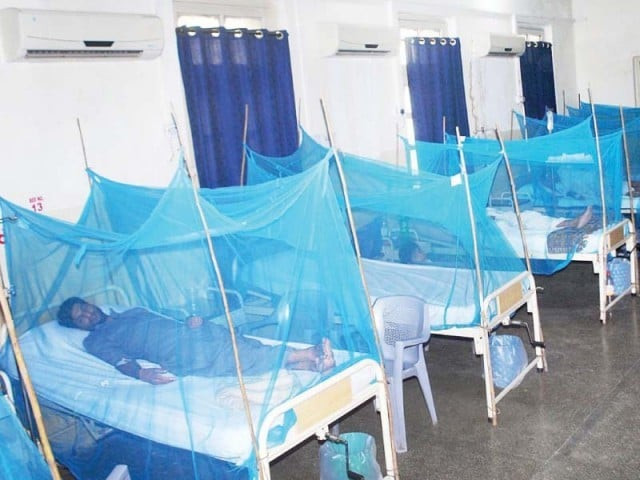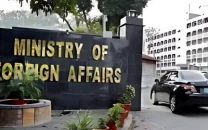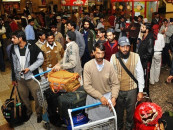Dengue kills youth, death toll hits 51 in twin cities
NIH, health ministry launch dengue control drive

PHOTO: FILE
The latest fatality occurred in Holy Family Hospital (HFH) with the death of 32-year-old Hasnain who hailed from Islamabad.
Apart from this, as many as 163 patients from federal capital and 127 from garrison town were brought to allied hospitals over the past 24-hours after which the collective figure in garrison town has increased to 9,451 of which some 3,549 patients hail from federal capital who reached Pindi hospitals for treatment
Majority of the cases in Rawalpindi were reported from the worst-hit dengue area of Potohar Town with 64 on records while 70 cases also emerged from different parts of the Rawalpindi Cantonment Board (RCB).
Meanwhile,the National Institute of Health (NIH) Islamabad and Ministry of National Health Services Regulations and Coordination have developed a three month joint emergency plan of action for dengue control in twin cities.
The plan was developed by Ministry of National Health Services Regulations and Coordination in collaboration with Pakistan Red Crescent Society which succeeded in securing Rs19.64 million from International Federation of Red Cross (IFRC), Geneva.
The plan is being executed in the most vulnerable areas, with very high burden of disease and it shall benefit the 210,270 target population of twin cities.
According to the plan, a series of activities like dengue larvae source management campaigns in households, educational institutions and hospital; distribution of mosquito repellents and bed nets in different hospitals and community level.
It is also highlighted in the plan that the government shall launch Mobile Health Teams using ambulances with technical staff deployment in hotspot areas of twin cities to provide diagnostic and case management services at community level.
For capacity building and community level interventions the government shall train 70 community-based volunteers who may actively involve in health education and public behavioural change activities.
Considering the most recent evaluation and monitoring the action plan execution areas in Rawalpindi are Dhoke Munshi, Rehmat Aabad, Kotha Kalan, Morgah, Dhama, Syedan, Gangal, Dhamial, Allama Iqbal Colony, Ahmed Abad/ Azizabad, Kamalabad, Tench Bhatta, Westridge, Chammanzar, Rahemabad, Dhoke Farman Ali, Dhoke Chiragh Din and Dhoke Hassu.
The potential vulnerable areas of Islamabad which shall get similar treatment according to plan are Sector G-6, Sector G-7, Sector G-8, Sector G-9, Sector F-6, Sector F-7, Sector I-9, Sector I-10, Sector I-8-1 and Rawal Town.
Published in The Express Tribune, October 20th, 2019.



















COMMENTS
Comments are moderated and generally will be posted if they are on-topic and not abusive.
For more information, please see our Comments FAQ